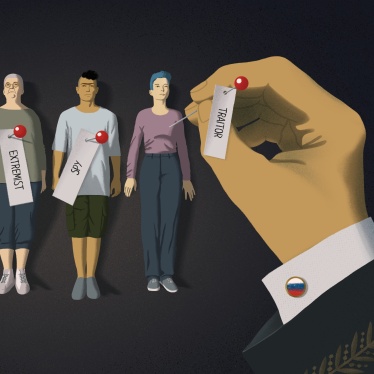(Istanbul) – The Turkish government should promptly stop unlawfully blocking websites.
On December 18, 2012, the European Court of Human Rights ruled, in the case of Ahmet Yıldırım v. Turkey, that blocking Google Sites in Turkey violated the right to freedom of expression. A Turkish court had ordered the complete blocking of Google Sites because of one person’s post. But the European Court found that Turkey’s legal framework was inadequate and did not prevent abuses and arbitrary application of blocking measures.
“The court has sent a strong message that wholesale blocking of Internet services is arbitrary, overbroad, and violates freedom of expression online,” said Cynthia Wong, senior researcher on Internet and Human Rights at Human Rights Watch. “With over 40 countries now filtering the Internet to some degree, this decision provides a much-needed precedent.”
The case was brought by Ahmet Yıldırım, whose personal website was hosted on the Google Sites, a low-cost website creation and hosting service. On June 23, 2009, the Denizli Criminal Court issued a blocking order against the owner of another website for insulting the legacy of Mustafa Kemal Atatürk, the founder of modern Turkey, a crime under Turkish law. Human Rights Watch has repeatedly recommended the repeal of Turkey’s laws – among them the law on insulting the legacy of Atatürk – that are contrary to Turkey’s international obligation to uphold freedom of expression.
The website subject to the Denizli court order was also hosted on Google Sites. The national authority responsible for carrying out the blocking order, the Telecommunications Directorate (TİB), then sought to expand the order to the entire Google Sites service, asserting it was the only way to block the disputed website. The Denizli Court agreed, even though this action blocked access in Turkey to all websites hosted on Google Sites, including those that had nothing to do with the disputed website. As a result, no one could access Yıldırım’s personal website, which included his academic work and personal writing.
“As the European Court explicitly recognized, the Internet is one of the principal means of exercising the right to freedom of expression and information, and so the access restrictions were a significant interference,” Wong said. “Millions of users rely on Google Sites and other services to express themselves and get information. The government is legally obliged to comply with this ruling and take a much more proportionate approach.”
In this case, the Denizli Court and the Telecommunications Directorate had acted under Turkey’s Internet blocking regulation, Internet Law 5651. The European Court found that the website block violated Article 10 of the European Convention on Human Rights because the law did not adequately protect against arbitrary application or abuse of blocking measures. Law 5651 does not require the criminal court to assess whether wholesale blocking of the service was justified or whether the Directorate could have taken less far-reaching measures.
The European Court also said the Denizli judge should have considered that the measure would have restricted large amounts of legitimate information hosted on the same service, directly affecting the rights of a much larger group of Internet users.
Turkey adopted its Internet blocking law in 2007. According to tests conducted by the OpenNet Initiative, an internet filtering research group, the number of websites blocked by Turkey has “drastically increased” since that time, with 2,600 sites blocked within the first two years by some estimates. A Report of the Organization for Security and Cooperation in Europe representative on freedom of the media confirms this trend, though the exact number of sites is difficult to determine since Telecommunications Directorate stopped publishing statistics in May 2009.
An estimated 80 percent of the blocking results from the Directorate’s administrative decisions, with no judicial oversight, and websites are often not notified when they are blocked. The website engelliweb.com, which provides a listing of websites reportedly blocked in Turkey, currently lists 22,536 blocked websites, the vast majority through Directorate decisions and showing a rising number blocked over the past two years.
Blocking orders have been directed against several international websites that host large volumes of user content, including YouTube, Blogspot, and WordPress. In addition, the Directorate and local courts have blocked news sites with a pro-Kurdish political line and online forums central to the Turkey’s LGBT community, even though there is no clear legal basis under Law 5651 for blocking them. A website can be blocked under Law 5651 only if there is “sufficient suspicion” that certain crimes listed in the law are being committed on the website.
Given the arbitrary and often overbroad Internet blocking practices in Turkey, the OSCE Representative on Freedom of the Media, the Commissioner for Human Rights of the Council of Europe, and the European Commission have all called on the Turkish government to revise Internet Law 5651 substantially or repeal it. In light of the European Court’s ruling, the Turkish government should take all necessary steps to carry out the decision by reforming the law and end its wholesale blocking of websites and content hosting services, Human Rights Watch said.






